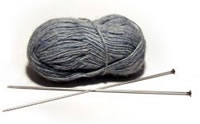Great British Beach Clean finds PPE on almost 30% of UK beaches
The Marine Conservation Society has released its findings from this year’s Great British Beach Clean – with discarded face masks and gloves found on almost 30% of the beaches covered.
This year, the Marine Conservation Society’s annual Great British Beach Clean, asked volunteers to record face masks and plastic gloves for the first time.
The charity’s citizen science project gives an insight into the most common forms of litter blighting UK shores. This year’s results are supported by inland data collected by volunteers embarking on the charity’s Source to Sea Litter Quest.
Face masks and gloves were found on almost 30% of beaches cleaned by Marine Conservation Society volunteers over the week-long event. The inland Source to Sea Litter Quest data also show a large presence of masks and gloves, with more than two thirds (69%) of litter picks finding PPE items.
Lizzie Prior, Great British Beach Clean Coordinator at the Marine Conservation Society said:
“The amount of PPE our volunteers found on beaches and inland this year is certainly of concern. Considering mask wearing was only made mandatory in shops in England in late July, little more than three months before the Great British Beach Clean, the sharp increase in PPE litter should be a word of warning for what could be a new form of litter polluting our beaches in the future.”
Drinks litter continues to be found on UK beaches, with an average of 30 drinks containers, caps and lids being found per 100m of beach surveyed this year. Inland, almost all litter picks (99%) found drinks litter.
Overall, the top 5 most common litter items on UK beaches in 2020 (average per 100m of beach surveyed) were:
Advertisement
- Plastic and polystyrene pieces (0-50cm) – 167.2
- Plastic and polystyrene caps and lids – 19.7
- Wet wipes – 17.7
- Cigarette stubs – 16.2
- Plastic string – 15.8
Dr Laura Foster, Head of Clean Seas at the Marine Conservation Society said:
“This year’s Great British Beach Clean data, in addition to the Source to Sea Litter Quest data, shows just how crucial it is that Wales, England and Northern Ireland follow in the footsteps of Scotland and urgently introduce an all-inclusive Deposit Return Scheme.
“Despite lockdown, with many of us spending more time at home, littering in public spaces has continued unabated. Almost every single local litter pick found at least one drinks container, which is incredibly concerning. An effective Deposit Return Scheme would take the UK one step closer to a circular economy model and drastically reduce the volume of single-use pollution in the UK’s streets, parks and on our beaches.”
Image credit: Marine Conservation Society




